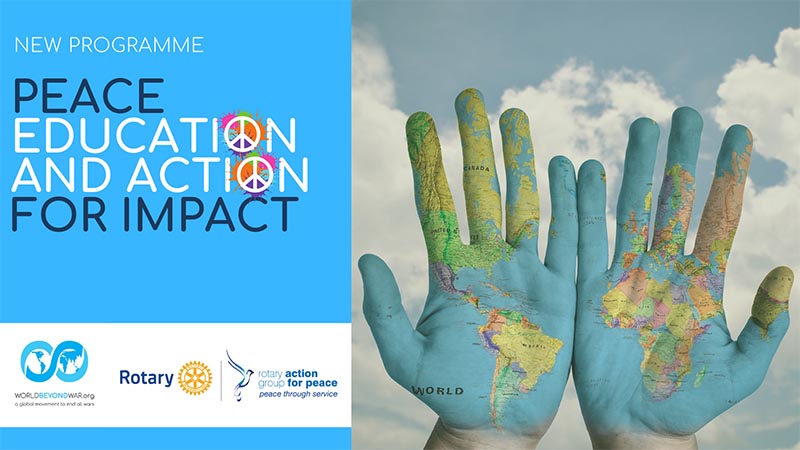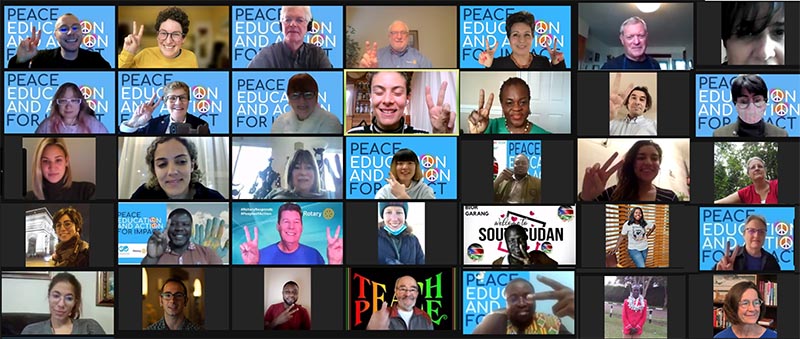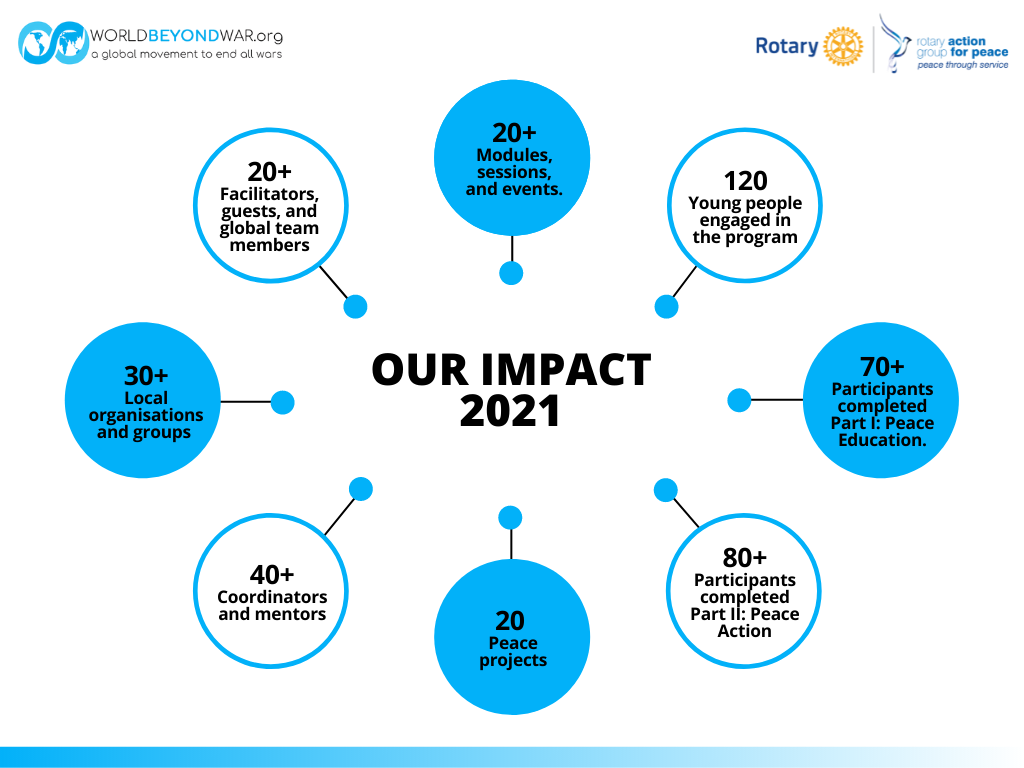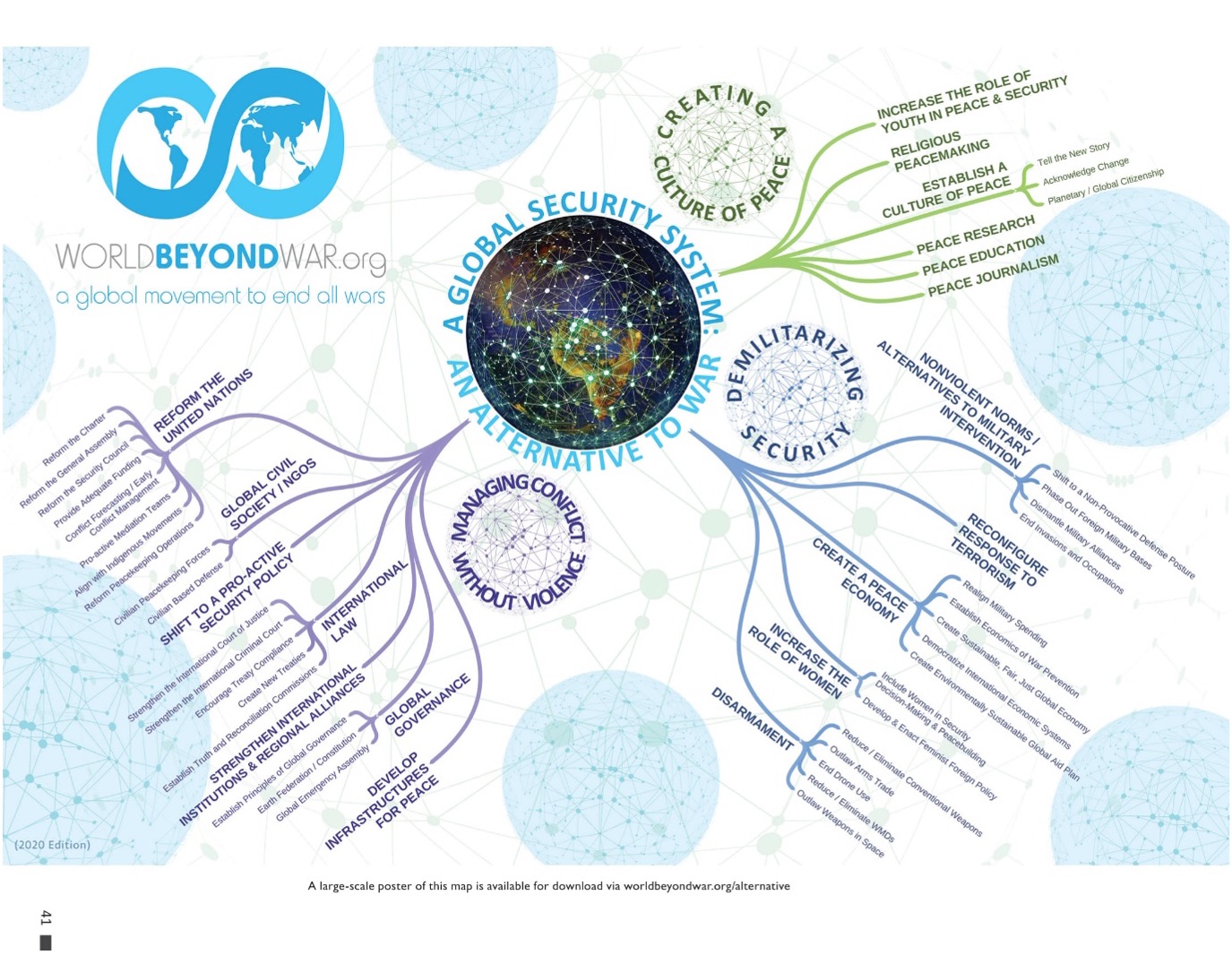In 2021, we launched the program in 12 countries (Cameroon, Canada, Colombia, Kenya, Nigeria, Russia, Serbia, South Sudan, Turkey, Ukraine, USA, Venezuela).
Key achievements include:
- Strengthening the capacity of 120 young peacebuilders in Africa, Europe, Latin America and North America, enabling them to acquire fundamental knowledge and skills related to peacebuilding, leadership, and positive change.
- Training a full cohort of adult professionals (30+), equipping them to act as in-country team coordinators and mentors.
- Providing 12 country teams with over 100 hours of guided support to successfully complete 15+ youth-led, adult-supported, and community-engaged peace projects designed to address urgent local needs.
Cameroon. Conducted 4 in-person focus groups and an online survey with youth and women to gather their views on impediments to their involvement in the peace process and suggestions for ways that they be included. The report has been shared with participants and governmental and organizational leaders who work with women and youth.
Canada: Conducted interviews and produced a short video on youth homelessness in Canada and how to address it.
Colombia: Implemented ten projects with youth throughout Colombia promoting a vision of Colombia as a multicultural society in a territory of peace. Projects included film screenings, art workshops, urban gardening, and recording a podcast.
Kenya. Facilitated three workshops for over one hundred children, youth and community members to develop their peacebuilding competencies through a combination of education, arts, play, and cultural activities.
Nigeria. Conducted surveys to understand public perception around school kidnapping and leverage the results to produce policy brief to influence policy makers and the general public around community-centred approaches to security and school kidnapping.
Russia/Ukraine. Delivered two workshops in Russia and one in Ukraine for elementary schools to enhance relationships and build students’ peacebuilding and dialogue capacities.
Serbia: Conducted surveys and created a pocket guide and newsletter aimed at helping Rotarians to both understand the importance of negative and positive peace and what they need to know and do in order to work towards them.
South Sudan: Delivered full-day peace training for south Sudanese urban refugee youth now living in Kenya to develop their skills in community leadership and becoming agents of positive peace
Turkey: Held a series of bilingual seminars and discussion groups on building positive peace and using the language of peace
USA: Created a collaborative Album – The Peace Achords – aimed at imparting some of the key strategies toward effecting a more peaceful planet, from exploring the systems at play to how one finds peace with him/herself and others.
Venezuela. Conducted an online survey of youth living in condominiums in partnership with micondominio.com to explore youth involvement in leadership with the goal of setting up active listening training sessions in 1-2 condominiums to facilitate problem- solving and increase youth involvement









